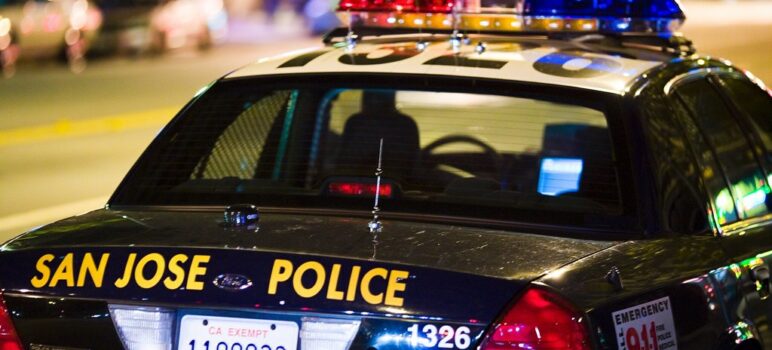About $1 billion of largely discretionary money from the American Rescue Plan Act was still uncommitted to Bay Area projects in December, according to the Bay Area Equity Atlas, a tool to track racial and economic equity in the region.
The uncommitted funds give city and county leaders an opportunity in the next three and a half years to make the region a fairer place to live.
The COVID-19 pandemic shed light on and exacerbated long standing inequities in Black and Hispanic communities, among others, say advocacy groups.
The American Rescue Plan Act (ARPA) passed by Congress in 2021 provided money to help Americans overcome the COVID-19 pandemic, including $350 billion for states and local governments through Coronavirus State and Local Fiscal Recovery Funds.
The Bay Area's $1 billion in uncommitted ARPA funds is a small part of the aid that states, cities and counties must commit to projects by the end of next year and spend by the end of 2026 or they lose the money in either case.
Fifty percent of ARPA dollars were dispersed in 2021 and the balance in 2022.
“The pandemic decimated Black and brown families, further entrenching racial and economic inequality,” said Jennifer Tran, a director at PolicyLink, which produces the Bay Area Equity Atlas along with the San Francisco Foundation and the USC Dornsife Equity Research Institute.
“Bay Area governments should make targeted and permanent investments with the remaining $1 billion SLFRF dollars that move communities toward a more equitable and sustainable future -- one that ensures the health and well-being of the region and all of its communities for generations to come,” Tran said.
Two-thirds of the Bay Area's roughly $3 billion in unallocated funds was already committed by December by the region's cities and counties.
State and Local Fiscal Recovery Funds are just part of the $1.9 trillion federal ARPA package following dispersion of Coronavirus Aid, Relief, and Economic Security (CARES) Act funds, which went to states and large cities in 2020.
Data on uncommitted and unspent COVID aid was collected by the Bay Area Equity Atlas from the U.S. Treasury Department for nine counties and 34 of the 101 cities in the Bay Area.
San Jose Mayor Matt Mahan said the city has used ARPA funds to "keep people housed, address food insecurity, and provide other essential services to our most vulnerable neighbors."
San Jose officials in May spent or committed all of the roughly $45 million in remaining funds from the $212 million they had received overall.
San Jose officials said they were concerned they would have to return some of the uncommitted or unspent money following Congress’ approval of a deal to suspend the debt limit.
Cities and counties may spend the money among four broad categories: 1) replacing lost revenue, 2) public health and economic aid, 3) premium pay for essential workers, and 4) investing in water, sewer and broadband infrastructure.
San Jose budget director Jim Shannon and director of finance Rick Bruneau said in a May 24 memo to Mahan and the City Council that the city lost more than $212 million in revenue from the pandemic.
Under U.S. Treasury rules, San Jose could allocate all $212 million to make up for lost revenue to pay for services.
The City Hall memo said nearly $88 million will go toward police patrol costs in San Jose.
In Santa Clara County, which received about $374 million, 53 percent of its SLFRF were unallocated in December. Thirty percent of Alameda County's roughly $325 million was uncommitted at the end of last year.
Oakland allocated all its money to replace general fund revenue. San Francisco received about $624 million and spent all of it on revenue replacement across city departments.
“The American Rescue Plan Act funds have been instrumental to keeping the Bay Area's communities and economy afloat during the pandemic," said Berkeley Mayor Jesse Arreguin, who is president of the Association of Bay Area Governments, a regional planning agency.
Arreguin wants to see any remaining funds spent for transit operations and emergency rental assistance.
ARPA provided $30.5 billion for transit and that funding is separate from the COVID funds. Ninety-three percent of ARPA money for transit has been committed and 67 percent has been spent.
“Regional transit systems relied on lifeline funding which is going away and the eviction cliff requires more funding to help owners and renters cover rent debt,” Arreguin said. “These are ongoing lingering impacts from the COVID emergency.”
Keith Burbank is a reporter with Bay City News.


It has become “monopoly” money. Not worth the paper it’s printed on.
Sad to see what our Great Country has become.
Do Not Hire Any MORE Dirty Cops.
Complete Psychiatric examination for all candidates for the police department.
No Transfers from other agencies or jurisdictions without a complete Psychiatric examination and evaluation.
We could fix all of our crumbling parks with that kind of money and maintain them for the next 20 years. Instead, we give $88,000,000, likely mostly in overtime, to SJPD. Are they going to catch and release 10 more criminals a day? How will that help? We still have the same number of criminals on the streets every day regardless of how much we spend on police. Until we have laws that put people and juveniles in prison again this is just tossing more taxpayer dollars down the toilet to enrich PD.